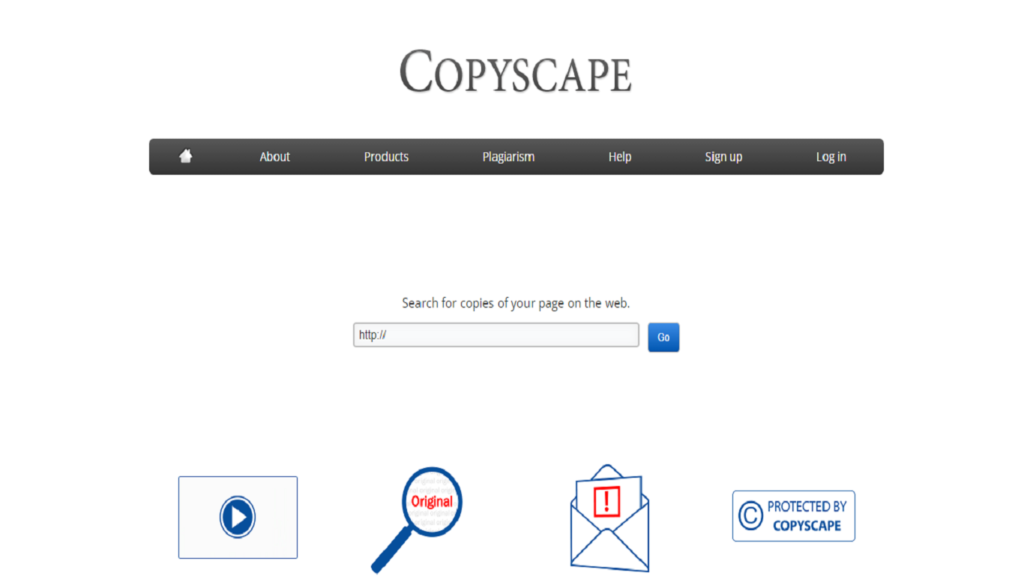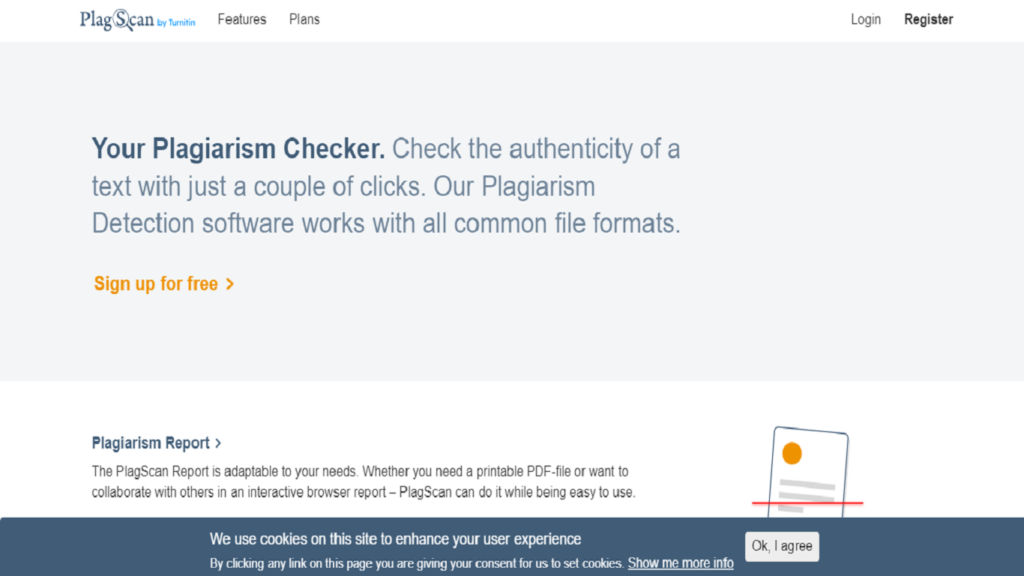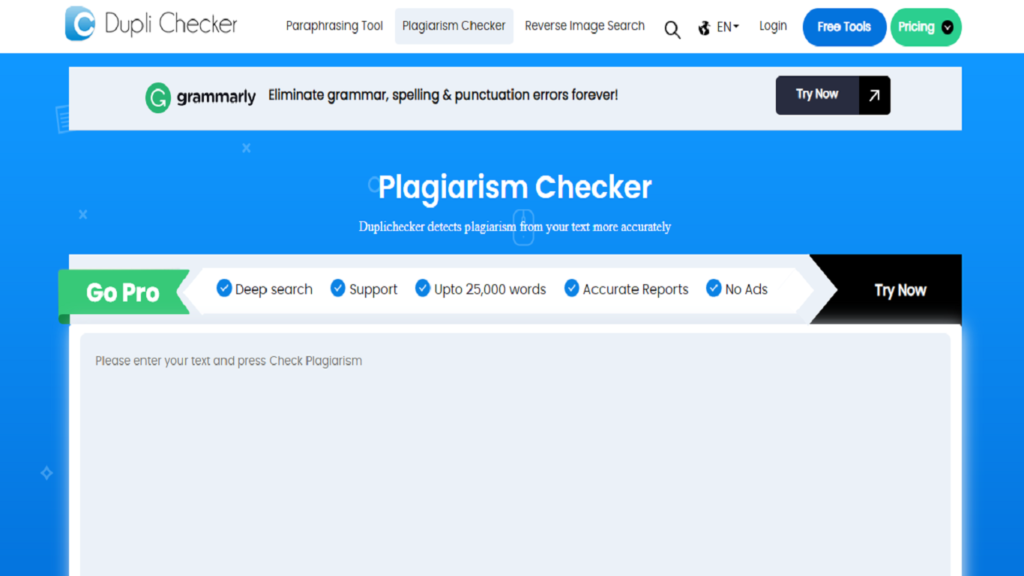Since you can write on practically any topic with the help of this tool, ChatGPT is the most well-known name in the AI writing industry. But now, plagiarism using AI is becoming a problem.
You have to make sure you are not plagiarizing anything when writing anything that will be published online. The question then becomes, how to Make ChatGPT not plagiarize?
You will be guided through the necessary information by this blog.
If you want to remove AI Detection and Bypass AI detectors use Undetectable AI. It can do it in one click.
ChatGPT and AI

The most sophisticated language model created by OpenAI is called ChatGPT. It is an effective tool that, when given prompts, produces text responses that resemble those of a human.
It can comprehend and participate in conversations, provide information, and help with a variety of tasks because it has been trained on a large amount of data.
This artificial intelligence (AI) chatbot processes and produces logical and contextually relevant responses using deep learning and neural networks, especially the transformer model architecture. It finds use in content creation, language translation, and chatbots.
Plagiarism

The use of another person work without getting their consent or giving credit where credit is due being known as plagiarism in content. It involves stealing ideas in many forms, like directly stealing someone else words, phrases, or paragraphs and passing them off as your own.
Word-for-word plagiarism is the term used to describe this kind of plagiarism.
Not giving credit when paraphrasing is another kind of plagiarism. Rewriting someone else words in your own is known as paraphrasing. Plagiarism still exists, though, if you present the ideas or data as your own while ignoring the original source.
To prevent this kind of plagiarism, it is critical to give due credit or citation to the original author.
Plagiarism with ChatGPT
The degree of plagiarism in content generated by ChatGPT is difficult to estimate. But as already indicated, text input is used to build the language model, and its output is produced using historical data.
Plagiarism related instances could appear in the output at any point. Most of the time, the percentage of plagiarism would not rise above 20%. It might also change depending on the subject. The prompts may have an impact on the percentage of plagiarism. A distinctive prompt increases the likelihood that the content will be distinctive.
Strategies to Avoid Plagiarism with ChatGPT

Plagiarism is an offense with dire repercussions in the workplace, in educational institutions, and in interpersonal interactions. It is crucial to be aware of potential plagiarism risks when using ChatGPT and to take proactive steps to avoid them.
The following tips will assist you in avoiding plagiarism when using ChatGPT:
Understand the Fundamentals of Plagiarism
Familiarize yourself with the definition of plagiarism. Plagiarism, for example, is when you use someone else words, ideas, or work as your own without giving them due credit.
Keep an eye out for various instances of plagiarism, such as direct copying and paraphrasing without giving credit. Gaining a deeper comprehension of plagiarism will enable you to write and produce content safely.
Suggest Writing with ChatGPT
Never think of ChatGPT as a one stop shop for content creation. Think of ChatGPT as a useful writing tool that fosters creativity and critical thinking. Make use of the AI writing tips and exercises to improve your work.
Make sure to add your own voice, perspective, and analysis.
Cite and Attribute Sources
Make sure to properly cite and attribute any information or ideas you combine from outside sources. Since ChatGPT may produce text that looks like it was published somewhere, it is important to give credit to the original authors.
Depending on the kind of information, use the appropriate citation styles.
Verify and Double Check the Data
Artificial intelligence (AI) tools can offer easy and rapid access to a wealth of information. Before utilizing the data in your work, make sure that it is accurate and reliable.
Verify the information provided by ChatGPT by independently consulting reliable sources to confirm the facts, figures, and claims.
Hone Your Research Abilities
Develop your research abilities to obtain data from various sources, such as ChatGPT and other AI tools so that you can assess their veracity critically. This will lessen the possibility that you will unintentionally copy content from other sources while assisting you in producing accurate and unique content.
Conducting thorough research guarantees that you possess a firm grasp of the subject and enable you to make genuine contributions to the discussion.
Edit and Revise
Using any AI tool to prevent plagiarism starts with this step. Make sure the content you created with ChatGPT adheres to your original intent and style by carefully reviewing and editing it after use.
Rewrite sentences, add personal observations, and make the necessary changes to prevent accidental plagiarism. The content becomes more unique the more input you provide from your end.
Plagiarism Detection Tools
Use plagiarism detection software to look for instances of inadvertent plagiarism in your work. These tools can find possible matches by comparing your writing to a large database of previously published content.
Several well-known plagiarism detectors are Turnitin, Grammarly, and Copyscape.
Human Feedback
If you are unsure whether your work is original or appropriate, ask colleagues, teachers, or experts for their opinions. They can offer insightful commentary, point out any possible problems, and help you write with integrity.
Stay Updated about AI
Keep abreast of the most recent debates and developments in AI. You can use artificial intelligence (AI) tools responsibly and make educated decisions if you are aware of the ethical ramifications of using them, including the possibility of accidental plagiarism.
Popular Plagiarism Detection Programs

There are various tools available today to detect plagiarism in written content. Here are a few frequently utilized tools:
Copyscape

Copyscape is the widely used and trustworthy tool for detecting plagiarism. This popular online plagiarism detector lets you verify the uniqueness of your writing by comparing it to websites from all over the world.
It can assist in determining whether a particular text has been plagiarized from other websites. As pay as you go, it functions. You can check all of your content at a reasonable cost.
Grammarly

Grammarly has a plagiarism checker function in addition to its main use as a tool for identifying grammar errors. Grammarly checks text for possible instances of plagiarism against a sizable database of documents and web pages.
Plagscan

Educators, companies, and content creators use Plagscan, a comprehensive plagiarism detection tool. It scans documents for plagiarism using a vast database of sources, which includes scholarly journals, websites, and publications.
It then generates comprehensive reports that detail any instances of plagiarism.
Dupli Checker

A free online plagiarism detector called Dupli Checker looks for textual duplicates on the internet. Users can compare their content with content from different sources and get highlighted text sections and a similarity percentage.
But there are a few more tools available as well. You can also find features for plagiarism detection in some AI tools.
Conclusion
It is critical to comprehend plagiarism and use the strategies to make the content unique in order to prevent plagiarism when using ChatGPT and AI tools. Try utilizing plagiarism detection programs like Copyscape to improve it after you have exhausted all of your options.
FAQs – How to Make ChatGPT not Plagiarize?
Using ChatGPT is a powerful way to generate text, but it is crucial to ensure that the content created does not fall into the trap of plagiarism. Here are the most common questions and answers regarding this topic.
What is ChatGPT and how does it relate to plagiarism?
ChatGPT is a state-of-the-art AI language model developed by OpenAI. While it is a valuable tool for generating content, it is essential to take steps to avoid plagiarism when using it. Plagiarism refers to the act of using someone else work or ideas without proper citation.
How can I ensure that ChatGPT does not lead to plagiarism?
To avoid plagiarism when using ChatGPT, it is essential to provide clear and specific prompts to the model. Clearly articulate what you want the content to focus on, and consider providing a brief explanation on the need to maintain originality in the content it generates.
Are there specific features within ChatGPT for plagiarism detection?
While ChatGPT itself does not have built-in plagiarism detection tools, you can use external tools such as Turnitin or Grammarly to check the generated content for instances of plagiarism.
What are some actions I can take to prevent plagiarism when using ChatGPT?
You can encourage citation of sources within the prompt provided to ChatGPT. Additionally, make it clear to the audience that the content generated by ChatGPT should not be directly copied and pasted without proper paraphrasing and citation.
How prevalent is plagiarism when using AI language models like ChatGPT?
Although the ease of generating content with AI language models like ChatGPT is convenient for various applications, it also brings forth the risk of potential plagiarism. It is essential to educate users to apply ethical writing practices to prevent plagiarize content.



AI Detection False Positive
November 27, 2023[…] detection tools emerged quite quickly after ChatGPT and other easily accessible AI for content writing. AI detection tools have emerged to identify […]
How OpenAI ChatGPT Watermark Works To Detect AI Content?
November 30, 2023[…] publishers, affiliates, and SEO all adore and fear ChatGPT as an amazing tool. Some marketers adore it because they are finding new uses for it, like creating […]
What Do Teachers Use To Detect Plagiarism?
November 30, 2023[…] its Deep Search technology and color-coded feedback, Quetext offers an effective plagiarism checking process that makes it simple to identify any potential problems. You can take advantage of […]